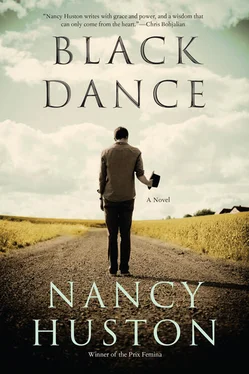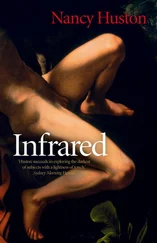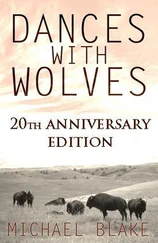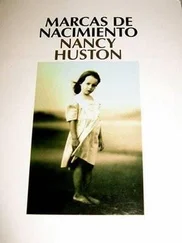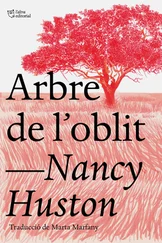Stones would freeze in this weather; souls would freeze.
We hear Act III, Scene 4 as Neil reads it out loud to himself in two different, mock-female voices: a dialogue between Catherine, the French princess and Alice, her chambermaid. His accent in French is perfectly abominable.
“ Je m’en fais la repetition de tous les mots que vous m’avez appris des a present.”
“Il est trop difficile, madame, comme je pense.”
“Excusez-moi, Alice. Écoutez: de hand, de fingres, de nails, de arma, de bilbow .”
“D’elbow , madame.”
“Ô Seigneur Dieu! Je m’en oublie; d’elbow . Comment appelezvous le col?”
“De neck , madame.”
“De nick . Et le menton?”
“De chin .”
“De sin . Le col, de nick ; le menton, de sin .”
“Oui. Sauf votre honneur, en vérité, vous prononcez les mots aussi droit que les natifs d’Angleterre.”
He snorts. Who would have thought that Shakespeare could teach him French? All he has to do is work backward: elbow is coude , neck is col , nails are ongles. . Now, if only he had an Alice!
CUT to dinner that evening. We’re in the pseudo-Victorian Sherbrooke Street home of Judge Ross McGuire, friend and former colleague of Neil’s father, who has unenthusiastically agreed to provide lodgings for the young man until he gets his bearings in the new country. Now twenty-seven and burning to be free, Neil is dismayed to find himself once again eating Irish food (roast beef, potatoes, gravy, green beans and creamed onions), served by an Irish maid to an Irish magistrate and his Irish wife. His father explicitly instructed him never, in this household, to broach the topics of James Joyce, Maud Gonne, or the Easter Rising.
“Yesterday,” mutters Judge McGuire as he swallows a large slice of roast beef almost whole, including fat and gristle, “Sinn Féin went ahead and proclaimed independence. Looks like war to me.”
“War, war, haven’t we had enough war?” Mrs. McGuire asks rhetorically. “First the Great War in Europe, then the Bolshevik Revolution in Russia. . and now, no sooner have our men come home than the Sinn Féiners start acting up again.”
“Forgive me,” Neil says. “But having arrived so recently from Dublin, I must say I understand their point of view. It would be worse than frustrating, humiliating, to come so close to independence and see it snatched away from us at the last minute.”
In excitement, Mrs. McGuire’s narrow rear end bobs up and down on her chair.
“But why could they not be content with what they were given ? Every single one of their sixty-nine candidates was victorious in last month’s elections!”
“Including twelve with death sentences on their heads,” her husband interrupts, his mouth full of mashed potatoes, “and twenty-one others currently serving prison terms.”
“Still,” insists Mrs. McGuire, “they did win fully three-quarters of the seats! It would have given them a powerful voice in Parliament. They would have been able to make themselves heard!”
“Yes, but in British Parliament,” Neil points out. “They don’t want a powerful voice in British Parliament, Mrs. McGuire. After all the sacrifices they’ve made, they feel it would be an unforgivable compromise.”
“Yes, they were most generous about sacrificing other people’s lives, weren’t they?” says the judge while chewing, gravy dribbling down his chin. “The lives of poor, ordinary, run-of-the-mill Catholics, who found themselves caught up in strikes, lockouts and riots, and corralled into a political movement about which they knew nothing.”
“They want a parliament of their own,” intones Neil with dignity. “The Dáil Éireann. From all I can gather, that is what has just been ratified.”
“It means war, I tell you!” splutters McGuire. “The new chief of state will be Éamon de Valera, who also happens to be in jail in England! Frankly, my boy, would you not rather see Ireland run from Westminster than from Holloway?”
“Con Markiewicz wasn’t above saying yes,” Mrs. McGuire points out. “I must admit I’m proud of that woman. Just think: the first female member of Parliament ever, an Irishwoman! British women have voting rights now,” she adds, in a bit of a non sequitur. “Canadian women, too; well, except here in Quebec. .”
“I knew her,” Neil blurts out.
“Who? Lady Constance?”
“Yes. I mean, I saw her a few times.”
“And where would that have been?”
Mercifully, the maid barges in.
“Shall I warm the apple torte now, ma’am?”
“Yes, do, Maggie. We should be ready for it in three or four minutes.”
CUT to Neil walking the streets of Old Montreal. At these temperatures, the wind is searing. It burns your cheeks, whips powdery snow up your trouser legs, and dives into the space between your scarf and neck, attacking your vulnerable, warm flesh. In a matter of minutes your nose can freeze; your ears can freeze; your fingers and toes can freeze.
It’s a miserable city in which to pound the pavement in search of employment. Neil had thought that being a river port like Dublin, Montreal would feel familiar to him, but nowhere along the Saint Lawrence can one hop and skip from bridge to bridge as along the Liffey, cutting capers and dreaming of one’s green-as-a-meadow future (ah! that memory’s nearly a decade old!). All is harsh and cold and hard and cold and gray and cold and dark and cold and hostile; and cold. The pavement beneath his feet is sharp and slippery with frozen slush. His shoes are wearing thin; even new, they could not have withstood this punishing climate. To survive in Canada, he’ll need not only new shoes but a new personality, new hopes, new values.
On his first evening in Montreal, Judge McGuire had plunged him into a bottomless melancholy merely by showing him a map of the province. Half a dozen Irelands could fit into it, the judge had told him, but it is empty. Apart from the small towns and smaller villages spaced out along the river that plunges its sharp wedge diagonally through the province’s southernmost section all the way to the Great Lakes, it is unpopulated. Nothing but Indian and Eskimo tribes of a few hundred members each, scattered over an inconceivably gigantic, uninhabitable, icy tundra dotted with a zillion frozen lakes.
Neil doesn’t know quite why the thought of Quebec’s immensity and emptiness so distresses him, but it does.
After about forty minutes, he literally can’t stand the cold anymore; his legs have turned into sticks of ice and he fears they’ll snap if he remains outdoors even one more minute. He ducks into a hotel lobby on Notre-Dame Street.
INTERIOR — DAY, if this gloom can qualify as daylight. Acutely depressed, Neil pushes through swinging wooden doors into the hotel restaurant and heads for a small table next to the window. His depression is not merely that of any lonely, unemployed person who finds himself in a crowded place where everyone else seems to know who they are and why. It’s worse. It’s the depression of exile.
Visible through the nasty freezing snow, painted in white letters on the side of a smoke-blackened brick building across the street, he reads the words G. A. Holland and Son Co. House Furnishers, Carpets, Draperies . Perhaps this firm would hire him? Perhaps he could spend the rest of his life selling draperies in Montreal? It makes him want to die. Who are Holland and Son, anyway? Where did they come from and what the feckin’ hell are they doing here? Why do people cross oceans? Why do they do anything? What were you thinking of, Willie Yeats, when you advised me to immigrate to the Americas to write? Did you come over to Montreal to seek inspiration? Not at all! You preferred to remain holed up in your comfortable old apartment in London and your wild, romantic thoor in County Galway. As for Jimmy Joyce, he cleverly moved from Trieste to Zurich to Paris, and can now spend the remainder of his years traipsing along the Seine, holding forth in bars and tying up whores! What, prithee, can one hope to write in forty-below weather in a port city along whose river one cannot even walk?
Читать дальше
